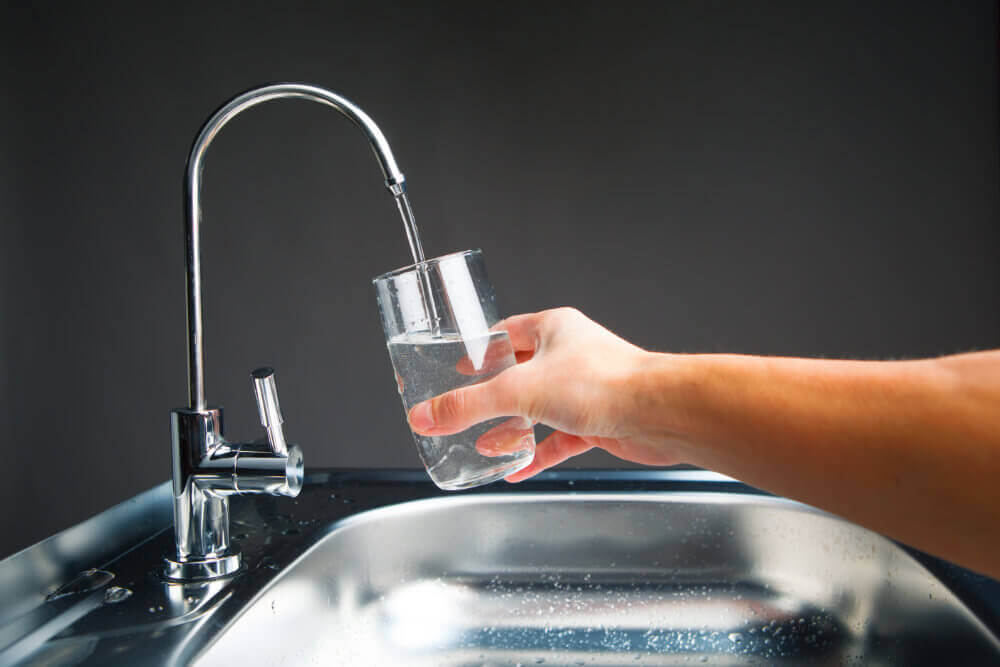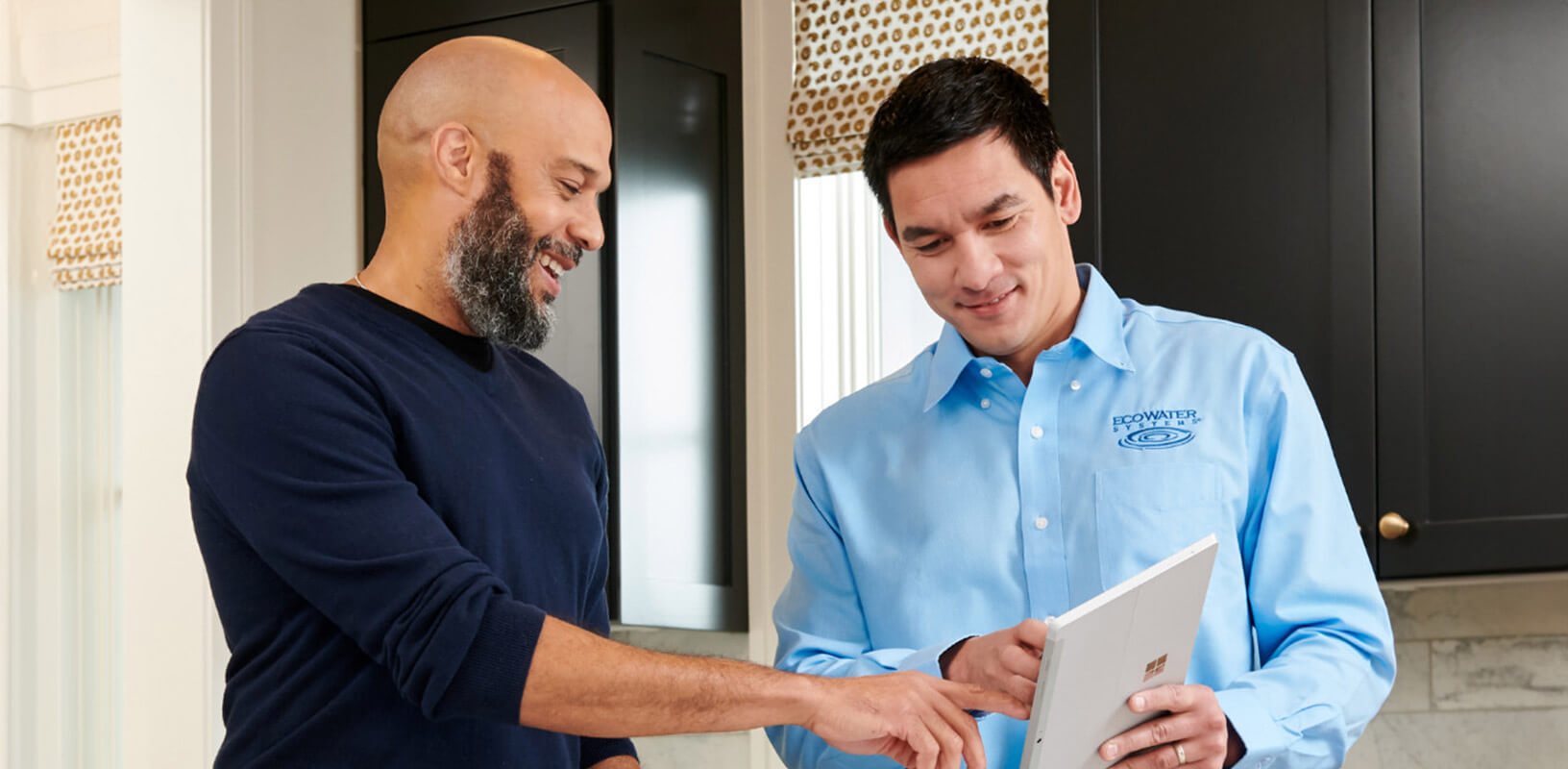Every homeowner should want water that’s clean, safe and tastes great. But when you’re dealing with contaminated home water and how to solve it, figuring out where to start can be challenging. In some instances, it may even feel like putting together a jigsaw puzzle. If that’s you, help is here.
There are several water treatment options to pick from, with each type of system targeting different problem areas. To reduce water contamination, and depending on your area and specific water conditions, you may benefit from adding one or more treatment systems to your home.
Learn how water softening versus conditioning options work, and whether you may need filters that can treat water throughout the whole home, or under a kitchen or bathroom sink.

The Importance of Healthy Home Water
Everyone must consume an ample supply of clean, safe water on a consistent basis to be healthy and hydrated. From improving skin health to carrying nutrients and oxygen throughout your body to protecting vital organs, the consumption of clean water is crucial to your overall health and well-being. In addition, select water contaminants that are pretty commonly found in home water are proven to negatively impact health, some even increasing the chance of certain types of cancer.
Reducing unwanted water contaminants is one of the easiest ways to protect your health, and the health of your family, friends and visitors.
What Is Water Softening?
The process which removes hard water minerals such as magnesium, calcium and iron from water, water softening is usually achieved through ion-exchange resins which come from a water softener. The process can also be completed through reverse osmosis or nanofiltration, though those methods are less common.
The vast majority of water softeners include a resin tank. When water enters the softening system, it goes through the resin tank, which includes a resin bed and beads which generate the soft water, as the beads swap hard water minerals for sodium ions that the minerals hold.
What Is Water Conditioning?
Water conditioning is a method to treat hard water, like softening, but conditioners are a salt-free alternative that provide soft water without actually removing the hard water minerals from your home water. This is achieved through a process where the chemical composition of your water is changed without actually removing the minerals.
Water conditioners may also treat other unwanted contaminants, such as chlorine and volatile organic compounds (VOCs).
When to choose water softening vs. water conditioning
If solving water hardness is your chief concern, adding a water softener to your home is likely your best option. If you want to keep hard water minerals in your home water, but don’t want it negatively impacting your plumbing or water-using appliances, and if you want additional protection from chlorine and VOCs, then a water conditioner may be the right pick.
Request a free, in-home professional water test
Tap into your local EcoWater Pro’s expertise to find out what’s impacting your home water.
What's Right for My Water?What Is the Difference Between a Water Softener and a Water Treatment System?
Water softeners and conditioners are used for water treatment and are often one part of a home setup that includes comprehensive protection against a range of contaminants. Home water treatment systems may also include whole-home or under-sink filtration systems.
Whole-home and under-sink filters can reduce many unwanted contaminants found in home water. Water softeners, meanwhile, target scale buildup within plumbing and water-using appliances, spots on dishes and glassware, and more.
EcoWater has innovative options for water softeners and a refiner option, which reduces chlorine in addition to hard water minerals.
What Is Water Filtering?
Even when treated by a municipality, water that flows into homes is contaminated by organic and inorganic materials. Everyone’s water contaminants are different and some homeowners are more health-conscious than others, making them care more or less about what’s in their water. Water filters are designed to reduce unwanted contaminants, providing safer, healthier water.
For water filters, system choices are broken down into under-sink or whole-home solutions. EcoWater has a range of drinking water purification systems that are third-party certified to reduce a range of contaminants, ensuring your filters work as intended.
Home water contaminants a filtration system can reduce include:
- Arsenic
- Chlorine
- Lead
- Microplastics
- Nitrate
- Pesticides
- Pharmaceuticals
- Select PFAS, including PFOA and PFOS
- Viruses
Some of the contaminants listed above, like chlorine, aren’t known to pose a risk to public health but many people want to remove it from their water, given the odor (swimming pool smell) associated with it. Others, including PFAS like PFOA and PFOS, are proven to negatively impact health.
Depending on your home water and preferences, a whole-home filtration system may fill your needs. If you want to target a wide range of contaminants, an under-sink option like a reverse osmosis (RO) system may give the thorough protection you’re looking for.
What’s right for my home: Water softeners vs. water filters
All water softeners reduce hard water minerals, but usually not much else. If you want to reduce hard water minerals, and also other contaminants covered above, you likely want a water softener and a filtration system of some kind. Which type varies, based on your specific water and needs.
Find the right solution
Everyone’s home water is different. When it comes to the health and safety of your household, leave nothing to chance. Get your home water tested for free by an experienced EcoWater Pro. They will identify which contaminants impact your water and will recommend a solution that will provide you with long-term relief. No strings attached, and no purchase required.

Get Answers From an EcoWater Dealer Near You
It’s easy to find an EcoWater dealer near you who can help solve and answer any of your water problems.
